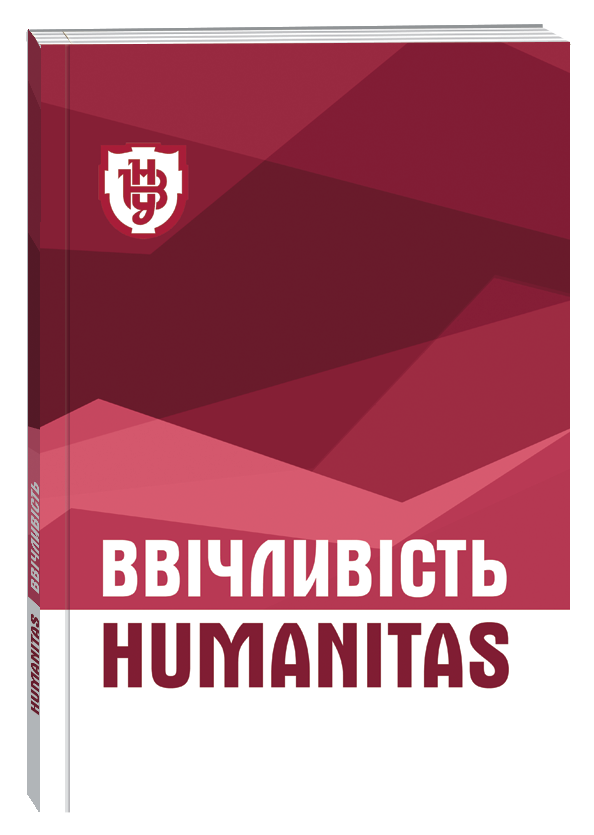FORMATION OF REFLECTIVE COMPONENTS OF FUTURE SOCIAL WORKERS’ PROFESSIONAL COMPETENCE
DOI:
https://doi.org/10.32782/humanitas/2022.1.9Keywords:
social worker, reflexive competence, reflective practice, reflective thinking, critical reflectionAbstract
The article is devoted to the topical problem of formation of reflective competence of future specialists in social work, in particular the creation of tools for reflective practice, which can be used directly in the process of lifelong learning. The aim of the work is to develop a program for the formation of reflective components of future social workers’ professional competence. Theoretical and methodological principles of the program are modern foreign and domestic models of reflection, own research on the structure of future social workers’ professional competence, reflective practice teaching model J. Joyce-McCoach and K. Smith. The work further developed opportunities for professional training of future social workers by creating a program of psychological and pedagogical support for the formation of reflective competence, expanded understanding of methods and technologies of reflective practice used in the training and improvement of social workers. The article reveals the content of the program of formation the social workers’ reflective competence, which involves in guiding students through three levels of reflection - reflection on "I" and one's own professional qualities and values, reflection on professional practice and attitudes, critical reflection on social changes that shape and limit social workers and their activities.. The general methods and techniques that are appropriate to use at each of the levels of formation the reflexive competence are outlined. It is noted that the presented program allows to move from the statement of the level of development of professional qualities of the individual to the directed management of the process of future professionals’ professionalization. The conclusions summarize the conditions for successfully use subjective meanings in reflective writing and master the skills of critical professional reflection.
References
Степанов С.Ю., Семенов И.Н. Психология рефлексии: проблемы и исследования. Вопросы психологии. 1985. № 3. С. 31–40. URL : http://voppsy.ru/ issues/1985/853/853031.htm
Дударева В.Ю., Семенов И.Н. Феноменология рефлексии и направления ее изучения в современной зарубежной психологии. Психология. Журнал Высшей школы экономики. 2008. Т. 5. № 1. С. 101–120.
Schön D. A. Educating the reflective practitioner. San Francisco, London : Jossey-Bass Publishers, 1987. P. 345.
Chan C. K. Y., Lee K. K. W. Reflection literacy: A multilevel perspective on the challenges of using reflections in higher education through a comprehensive literature review. Educational Research Review. 2021. Vol. 32. DOI : https://doi.org/10.1016/j.edurev.2020.100376
Horton A. G., Gibson K.B., Curington A.M. Exploring reflective journaling as a learning tool: An interdisciplinary approach. Archives of Psychiatric Nursing. 2021. Vol. 35(2). P. 195–199.
Лапіна М. Д. Психологічні особливості формування професійних якостей особистості майбутніх соціальних працівників : автореф. дис. ... канд. психол. наук : 19.00.07. Харків, 2018. 22 с.
Joyce-McCoach J., Smith K. A teaching model for health professionals learning reflective practice. Procedia – Social and Behavioral Sciences. 2016. № 228. Р. 265–271.
Mirzaei F., Phang F. A., Kashefi H. Measuring тeachers reflective thinking skills. Procedia – Social and Behavioral Sciences. 2014. Vol. 141. P. 640–647.
Sanchez-Mart A., Puig M.S., Ruiz-Bueno A., Regos R.A. Implementation and assessment of an experiment in reflective thinking to enrich higher education students’ learning through mediated narratives. Thinking Skills and Creativity. 2018. Vol. 29. P. 12–22.
Практикум по психологии жизненных ситуаций / под ред. Е.Ю. Коржовой. Санкт-Петербург : ООО «Фирма «Стикс», 2016. 268 с.
Thomas M., Isobel S. «A different kind of space»: Mixed methods evaluation of facilitated reflective practice groups for nurses in an acute inpatient mental health unit. Archives of Psychiatric Nursing. 2019. Vol. 33(6). P. 154–159.
Марусинець М. М. Педагогічні умови та засоби формування професійної рефлексії майбутніх учителів початкових класів. Гірська школа Українських Карпат. 2015. № 12–13. С. 196–198.
O'Neilla L., Johnsonc J., Mandela R. Reflective practice groups: Are they useful for liaison psychiatry nurses working within the Emergency Department? Archives of Psychiatric Nursing. 2019. Vol. 33(1). P. 85–92.
Campbell T. D., Penz K., Dietrich-Leurer M., Juckes K. & Rodger K. Ways of knowing as a framework for developing reflective practice among nursing students. International Journal of Nursing Education Scholarship. 2018. Vol. 15(1). DOI : https://doi.org/10.1515/ijnes-2017-0043
Szenes E., Tilakaratna N. Deconstructing critical reflection in social work and business: Negotiating emotions and opinions in reflective writing. Journal of English for Academic Purposes. 2021. Vol. 49. DOI : https://doi.org/10.1016/j.jeap.2020.100931







